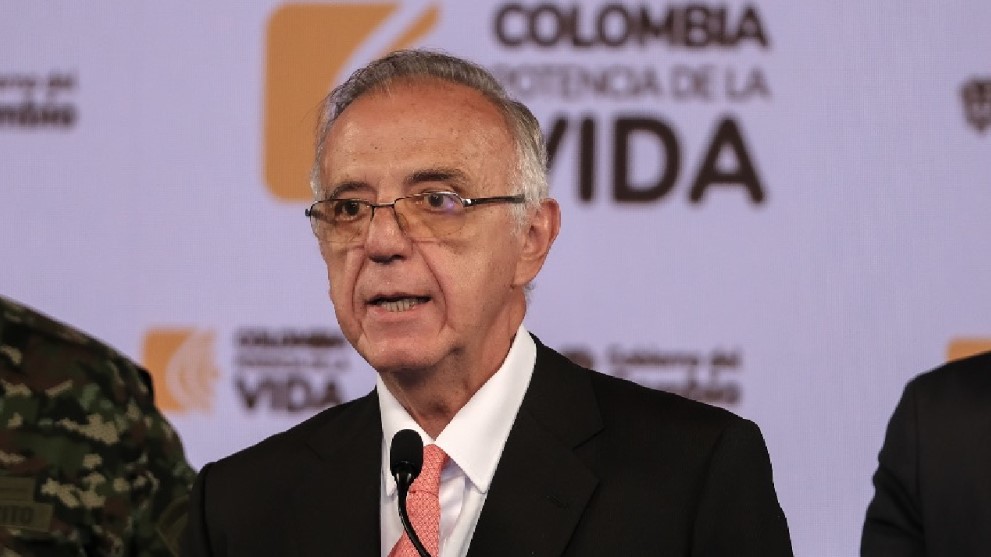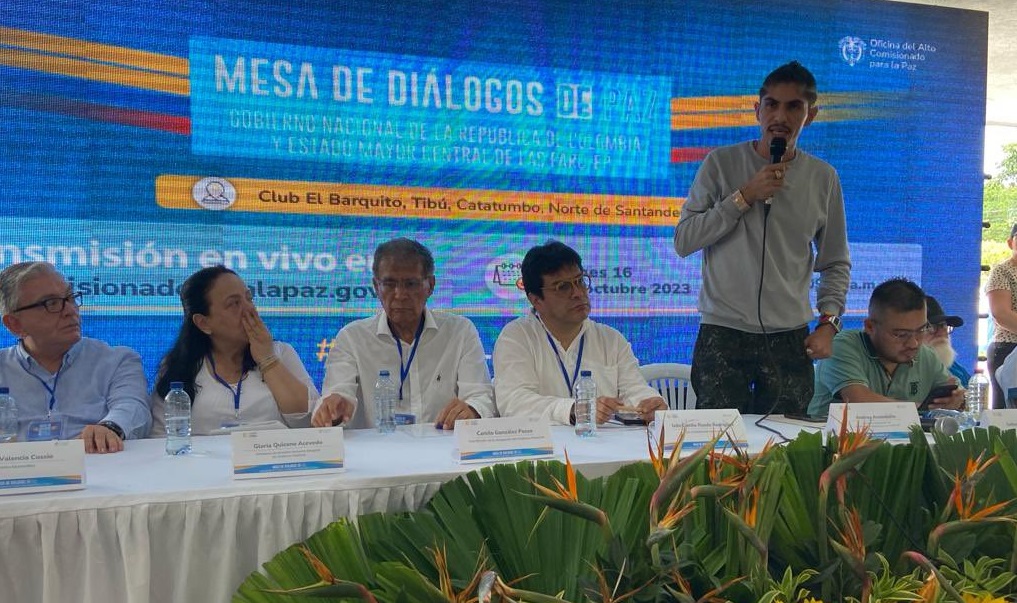
Colombia has recognized, through its Minister of Defense, Ivan Velasquez, that the guerrilla of the Central General Staff (EMC) took advantage of the ceasefire with the State to expand. After President Petro’s government broke the truce, having lost patience with the constant non-compliance and attacks on the civilian population in regions such as Cauca in the south of the country, this illegal armed group announced the creation of a new front in the area.
This announcement received a strange public assessment by the High Commissioner for Peace, Otty Patiño, when he affirmed that the group “has every right” to reorganize itself. The words of the government’s top peace official provoked a wave of criticism, as the EMC is the most important and violent dissident group of the former FARC in the country, and its rapid growth worries military experts.
Government rejection
With the Defense Minister’s statements, the Colombian government wanted to make clear its rejection of the EMC’s announcement. “We reject any expansionist purpose and consolidation of illegal armed organizations and the Armed Forces have all the commitment, as has already been demonstrated in recent weeks with intense fighting, to confront them,” said Velasquez in a press conference.
In a turbulent month of March, President Petro decided twenty days ago to break the bilateral ceasefire maintained by the State with this guerrilla group, with which peace talks have been underway since last year. A few days later, in a cross-criticism on social networks, the head of state described the guerrilla leader, alias Ivan Mordisco, as a “drug trafficker disguised as a revolutionary.”
These words were answered by Mordisco, in terms which some political opponents interpreted as an admission of the armed group’s collaboration in the presidential campaign of Gustavo Petro in 2022. This was denied by the guerrilla itself, but the tensions between the government and EMC have not diminished, a little more than five weeks after resuming the dialogues, which, however, have not been broken.
Commitment to tackle crime
In a context in which the opposition, and some related media groups, are branding the government’s policy of ambiguity and lack of forcefulness against the insurgency and illegal armed groups, the Minister of Defense wanted to send a message of firmness from the State to the population.
“We are going to continue fighting the EMC in the areas where the ceasefire is suspended, and the Military forces will continue to carry out operations to protect the citizens where the ceasefire is in force”, said Minister Velasquez.
The various dialogue tables that the government maintains with the armed groups, and the offer to negotiate an extension of the peace achieved in 2016 by President Santos, are experiencing moments of anxiety. The ambiguous positions of some guerrilla leaders, the doubts about the real control, both of the National Liberation Army (ELN) group and of the Central General Staff, overall their war fronts, and the permanence of violence despite the cease-fires decreed have brought the president’s Total Peace project to the edge of a precipice.

Future of the President’s “Total Peace” with the Colombian Guerrilla
With all this, the future of this fundamental project, personally championed by the President, is in doubt. Although it has always survived amidst majority distrust and opposition disqualification, today it is undergoing moments of questioning even in political and social factions close to the government itself.
In declarations to Revista Alternativa, the former commander of the extinct FARC, Pastor Alape, who played a leading role in the peace dialogues that concluded in the peace of 2016, assured that “Total Peace has not failed, but the efforts that have been made have not all been successful”.
Alape defended the search for peace, saying that we should always “look beyond the mere military treatment of conflicts, as we have historically handled it.” However, in the interview, Alape stated very clearly that the government’s failure was to “give a political status” to the dissident group of the Central General Staff, describing its leader, alias Ivan Mordisco, as “an instrument of all the illicit economies” in the country.
With these statements, the former guerrilla confirmed his opinion that, with this mistake, the government has made a group that does not represent any political option beyond criminality, grow politically. For Alape, the announcement of the creation of a new front represents an evident growth of the armed group, in the face of a scarce military response from the State. In a direct criticism of the government’s lack of strategy, Alape said that “the ceasefire must have some norms, some requirements, to prevent the armed group from taking advantage of it to expand”.
See all the latest news from Colombia and the world at ColombiaOne.com. Contact our newsroom to report an update or send your story, photos and videos. Follow Colombia One on Google News, Facebook, Instagram, TikTok and subscribe here to our newsletter.


